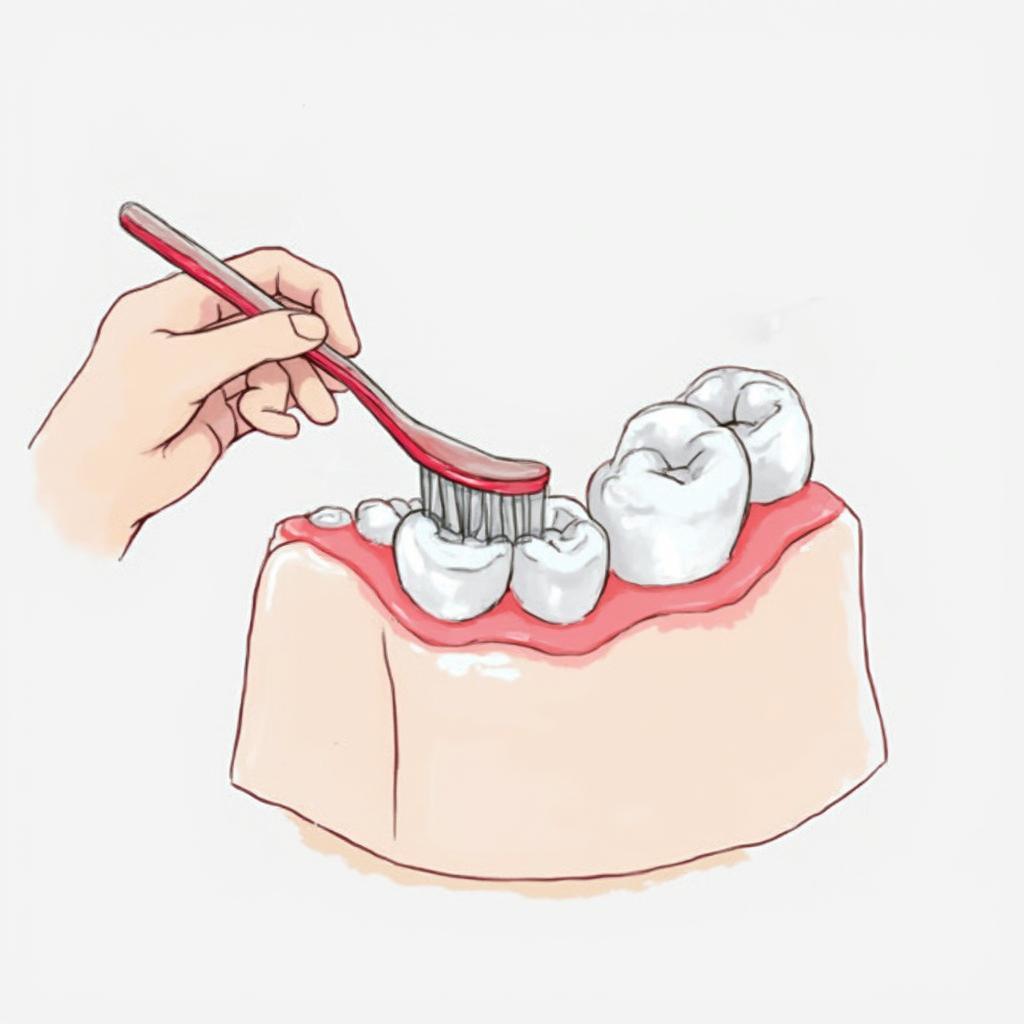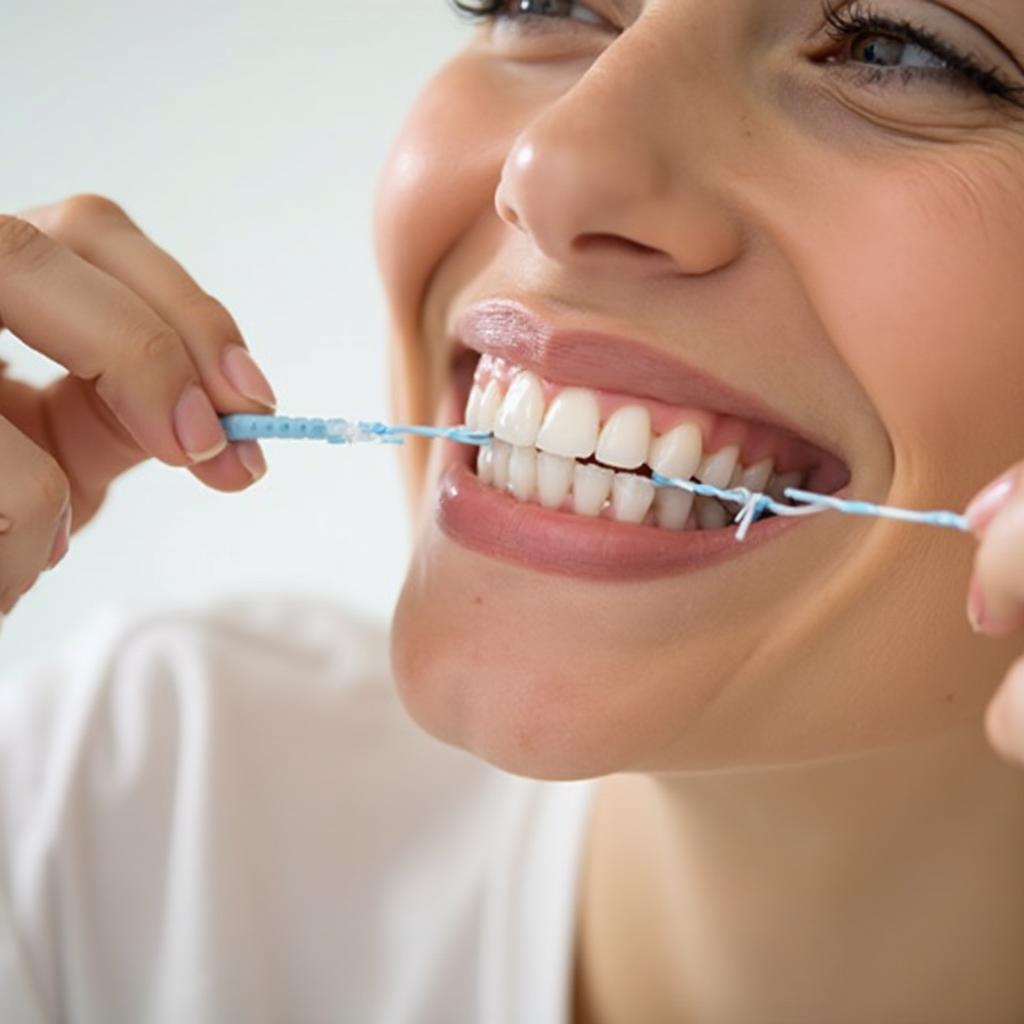Your cart is currently empty!

Essential Tooth Care Tips for Adults
Maintaining healthy teeth and gums is crucial for overall well-being. This comprehensive guide offers essential Tooth Care Tips For Adults to help you achieve a dazzling smile and optimal oral health.
Understanding the Basics of Adult Tooth Care
Proper tooth care starts with understanding the fundamentals. Brushing, flossing, and regular dental checkups form the cornerstone of a healthy oral hygiene routine. But it doesn’t stop there. Your diet, lifestyle choices, and even certain medical conditions can significantly impact your oral health. Neglecting these aspects can lead to cavities, gum disease, and other dental problems.
 Adult Brushing Teeth with Proper Technique
Adult Brushing Teeth with Proper Technique
Brushing Techniques: A Step-by-Step Guide
Brushing your teeth twice a day for two minutes each time is paramount. Use a soft-bristled toothbrush and fluoride toothpaste. Here’s a step-by-step guide for effective brushing:
- Place your toothbrush at a 45-degree angle to the gums.
- Gently move the brush back and forth in short strokes.
- Brush the outer surfaces, inner surfaces, and chewing surfaces of all your teeth.
- Clean your tongue to remove bacteria and freshen your breath.
The Importance of Flossing
While brushing cleans the surfaces of your teeth, flossing reaches the tight spaces between them, removing food particles and plaque that your toothbrush can’t reach. Make flossing a daily habit for optimal oral hygiene.
 Adult Flossing Teeth for Oral Hygiene
Adult Flossing Teeth for Oral Hygiene
Beyond the Basics: Advanced Tooth Care Tips
Beyond the basics, several additional tips can elevate your tooth care routine. Consider incorporating the following into your daily regimen:
- Choosing the Right Toothpaste: Opt for fluoride toothpaste to strengthen your enamel and protect against cavities. If you have sensitive teeth, consider a toothpaste specifically designed for sensitivity.
- Mouthwash for Added Protection: Therapeutic mouthwashes can help kill bacteria, reduce plaque, and freshen breath. Consult your dentist to determine the best mouthwash for your needs.
- Diet and Your Dental Health: Limit sugary drinks and snacks, as they can contribute to tooth decay. Focus on a balanced diet rich in fruits, vegetables, and calcium-rich foods for strong teeth.
Remember good dental care tips while travelling can help you maintain good oral hygiene even when you are away from home.
Addressing Common Dental Concerns
Many adults experience specific dental concerns. Here are some helpful tips to address them:
- Sensitive Teeth: Use desensitizing toothpaste and avoid extremely hot or cold foods and beverages. If sensitivity persists, consult your dentist.
- Dry Mouth: Drink plenty of water, chew sugar-free gum to stimulate saliva production, and consider using a saliva substitute if necessary. Jack russell care tips may seem unrelated but it emphasizes the importance of tailored care, just like your dental needs.
The Role of Regular Dental Checkups
Regular dental checkups are essential for maintaining optimal oral health. Visiting your dentist every six months allows for early detection and treatment of any potential problems.
“Regular checkups are crucial for preventing and managing oral health issues,” says Dr. Emily Carter, DDS. “Early detection can save you time, money, and discomfort in the long run.”
Conclusion
Following these tooth care tips for adults empowers you to take control of your oral health, ensuring a healthy and radiant smile for years to come. Prioritizing consistent oral hygiene practices, combined with regular dental visits, is the key to a lifetime of healthy smiles. Remember to incorporate these tips into your daily routine for lasting oral health benefits.
“Don’t underestimate the power of a healthy smile,” adds Dr. Carter. “It boosts confidence and contributes to overall well-being.”
FAQ
- How often should I brush my teeth?
- What type of toothbrush is best?
- Is flossing really necessary?
- How can I prevent cavities?
- What are the signs of gum disease?
- How often should I visit the dentist?
- What are the benefits of using mouthwash?
Common Scenarios and Questions
-
Scenario: Bleeding gums after flossing.
-
Question: Is it normal for my gums to bleed when I floss?
-
Answer: Occasional bleeding can be normal, especially if you’re just starting to floss regularly. However, persistent bleeding could indicate gum disease, so it’s best to consult your dentist.
-
Scenario: Sensitivity to cold drinks.
-
Question: Why do my teeth hurt when I drink something cold?
-
Answer: This could be a sign of tooth sensitivity or a cavity. Using desensitizing toothpaste can help, but it’s important to see your dentist to rule out any underlying issues. Oral care tips during treatment can also offer helpful guidance.
Further Exploration
For more specific tips on dental care, explore these resources:
Need Assistance?
For any inquiries or to book an appointment, contact us via WhatsApp: +1(641)206-8880, Email: [email protected], or visit us at 456 Pine Avenue, Toronto, ON M5V 2J4, Canada. Our 24/7 customer service team is ready to assist you.

Leave a Reply